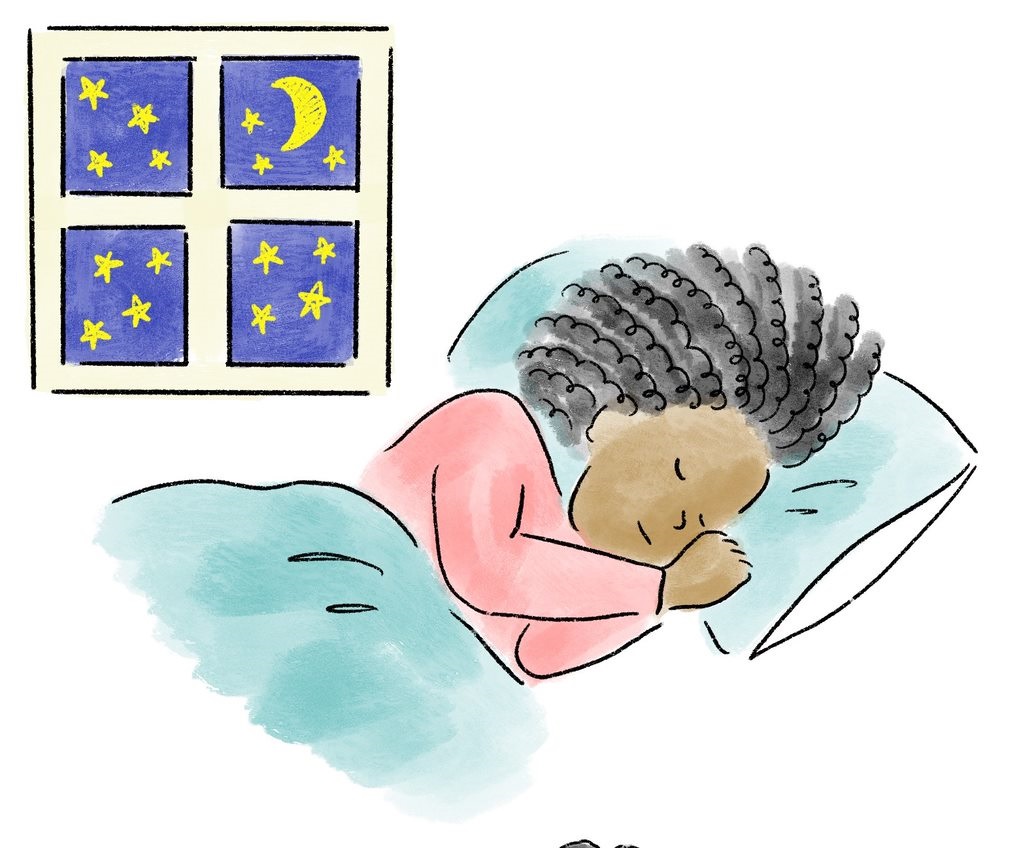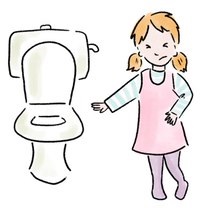Bedwetting (nocturnal enuresis)
Key facts
 Bedwetting is very common.
Bedwetting is very common.- It is more common in boys.
- It can run in families.
- For more information visit the NHS website.
What causes bedwetting?
Some of the causes of bedwetting are;
Constipation
 Constipation (when the bowel is full of poo) is a common cause, especially if the bedwetting starts after a child has been dry at night for a period of time. A full bowel can press against your child’s bladder making them feel like they need a wee or stopping them from holding as much wee as usual. Bedwetting can be a sign of constipation, so it's good to think about this.
Constipation (when the bowel is full of poo) is a common cause, especially if the bedwetting starts after a child has been dry at night for a period of time. A full bowel can press against your child’s bladder making them feel like they need a wee or stopping them from holding as much wee as usual. Bedwetting can be a sign of constipation, so it's good to think about this.
Signs of constipation include if your child is;
- passing hard poo
- going for a poo less than 4 times a week
- finding it difficult to poo
- finding poo leaking in their pants
Urinary Tract Infections
Infections in the wee can make the bladder misbehave. Features that might suggest a urine infection include;
- Stingy wee
- Cloudy wee
- Smelly wee
- Weeing more often
- Day time wetting
- Night time wetting
- Sore tummy
Other Causes
Sleeping through wetting
Some children find it hard to wake up when they need a wee. It is not because they are sleeping too deeply, it is because their brain doesn’t recognise the signal of a full bladder. If your child has the following it might suggest they are sleeping through wetting;
- Sleeping through wetting
- Wetting later in the night
- Moderate sized wet patches
- Normal concentration of urine
Too much urine
Vasopressin is a special hormone that is made at night that tells kidneys to make less urine when we are sleeping. Some children don’t make enough yet. Vasopressin so their kidneys make lots of dilute wee, too much to fit inside their bladder. If your child has the following it might suggest they have reduced Vasopressin;
- Wetting within the first 2-3 hours of sleep
- Large sized wet patches
- Dilute urine
Bladder doesn’t stretch enough
Some children wet the bed because their bladder is too small to hold all the urine they make at night or it is a bit twitchy and leaks urine, this is called an overactive bladder. If your child has the following it might suggest they have an overactive bladder;
- Wetting more than once at night
- Small volume wetting
- Normal concentration of urine
Times of stress
Times of stress and worry may restart bedwetting, for example;
- family disruptions
- change of school
- arrival of a new baby
- illness
How is bedwetting assessed?
 You will be asked questions about your child’s diet, bowel habit and general health. Your child’s growth will also be reviewed. Most of the time, tests are not needed. If a urine infection is suspected, your child will need to have a sample of their urine checked. You may be asked to complete a diary to monitor the number of daytime drinks, frequency of bedwetting and frequency of bowel movements.
You will be asked questions about your child’s diet, bowel habit and general health. Your child’s growth will also be reviewed. Most of the time, tests are not needed. If a urine infection is suspected, your child will need to have a sample of their urine checked. You may be asked to complete a diary to monitor the number of daytime drinks, frequency of bedwetting and frequency of bowel movements.
Contact your GP surgery, health visitor, or school nurse if you are concerned.
Tips to help reduce bedwetting
For more help and support on how to reduce bedwetting visit the ERIC website.


